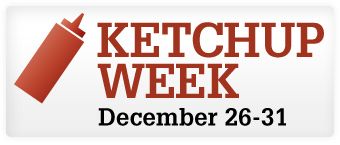by Josh Padnick
Although I love what I do, one of the more frustrating aspects of running a business is that YOU are always the bottleneck for everything. The reason we donât produce sites faster is because I, personally, have to review them. The reason sales are at X but not Y is because I personally have not yet hired the right salesperson and because I personally am too busy to proactively follow up with every single lead. The reason we havenât developed our new products faster is because I personally have to do some user interface designs but have been busy with other things.
 It sounds awful even just writing all that! Actually, the obsession with âI personallyâ is ultimately I think the completely wrong attitude when it comes to growing a company, but thatâs the topic of another post Iâve been germinating lately.
It sounds awful even just writing all that! Actually, the obsession with âI personallyâ is ultimately I think the completely wrong attitude when it comes to growing a company, but thatâs the topic of another post Iâve been germinating lately.
Anyway, one unfortunate side effect of being the bottleneck is that it creates a feeling that Iâm never finishing everything I want to, which is stressful. In school, we were always taught that finishing 100% of our homework was a good thing. You worked and worked until you finished what you had to do, and then you go have fun.
But what if youâre in a situation where you will literally NEVER finish all your work?
That was by far one of the most frustrating aspects for me of entrepreneurship. I was never âdoneâ; I was never âcaught upâ. My personal productivity was always less than the amount of things that needed to be done.
So what do you do with a situation like that? Do you just raise the white flag and mentally adjust to âIâll do the best I canâ? Do you enlist the support of others to lighten the workload? Do you try to alter the whole dynamic of it all (stepping âoutsideâ the problem)? Well, yes.
I actually have adjusted my attitude on this to three Key Ideas:
(1) I can only ask of myself that I do my best.
By definition, I canât possibly do better than âmy best.â So it stands to reason that all I can expect from myself is my best, and anything beyond that is simply unreasonable. This was a pretty helpful realization because it relieved me of the stress of trying to get everything done and instead made me realistic about what COULD be done.
(2) Enlist the support of others.
If I want our company to increase revenue by 5x this year, can I work five times as many hours? Can I work fives times as productively. Well, no. And yet there are companies that have grown by more than 5x in a single year. Where does the magic come from? It can only be through leverage: by enlisting the support of my colleagues, by enlisting the financial support of investors, by squeezing more juice out the oranges our vendors send us, by capitalizing on the relationships we have with our clients, etc. Iâm still not nearly as good at this concept as Iâd like to be, but Iâm starting to realize itâs the ONLY way that great companies are ever built.
(3) Make the mental choice: Is your life a series of stresses or a series of adventures?
And finally, after a long talk with my Dad one day, he summed it all up for me so well: âYou can either choose to view life as a series of stresses, or life as a series of adventures.â
Wow.
Itâs so true. I realized after he said that that there will ALWAYS be something to stress about. Those stresses donât get in the way of life; they are PART OF life! And so, when the next stressful event comes up, we can choose to be stressed (which is natural, and often healthy even), but we can also choose to see it as a fun little adventure. I mean, in the grand scheme of things, here in the USA most of us have our safety, a roof over our heads, and food in our stomachs, not to mention friends and family. At the end of the day, whatever weâre stressing about isnât really life or death most of the time.
So those are my three big Key Ideas. I donât practice them perfectly yet, but at least when I go to the office tomorrow and realize yet again I wonât be able to get to everything that I want to, Iâll have some perspective on it!
Josh Padnick is President and Founder of Omedix, a company that builds web sites for medical practices. This post is reprinted with permission from Padnick’s blog at joshpadnick.com












 Tornado Design
Tornado Design Minuteglass
Minuteglass Track The Time Blog
Track The Time Blog